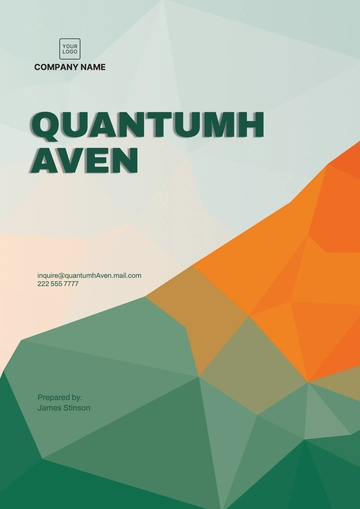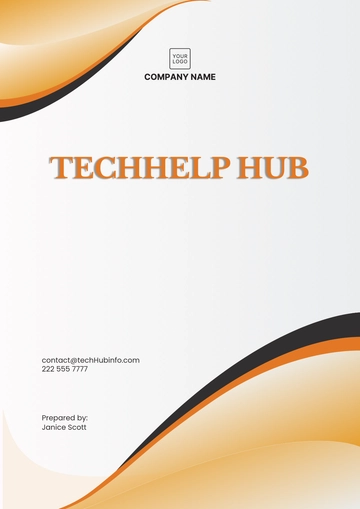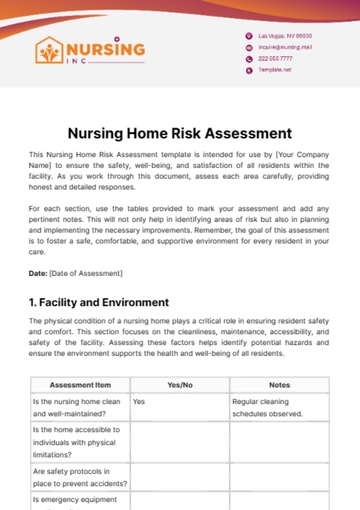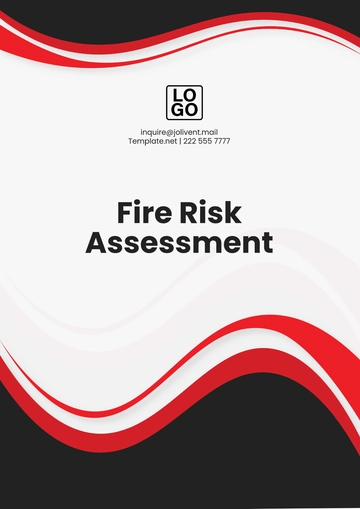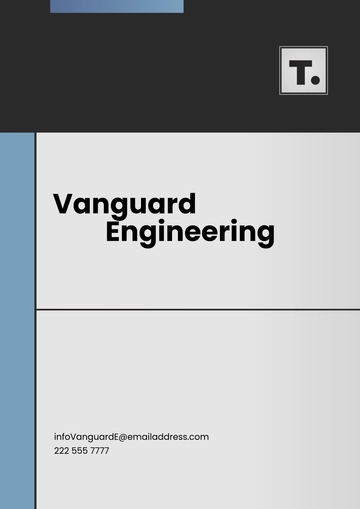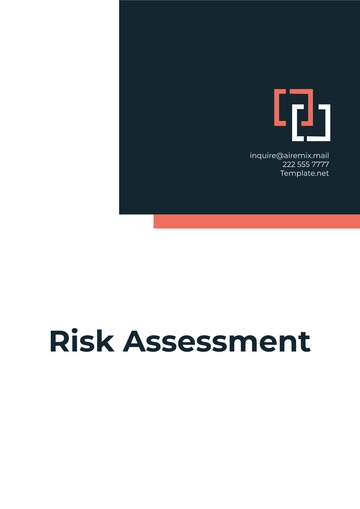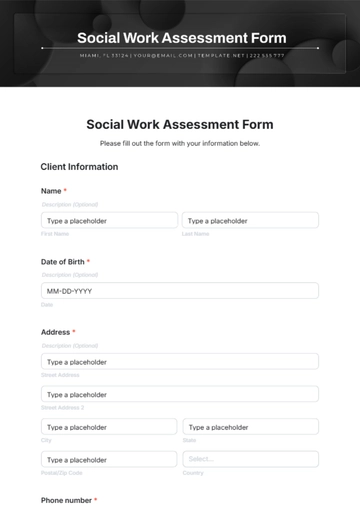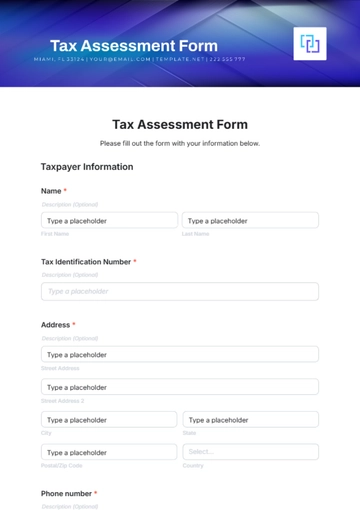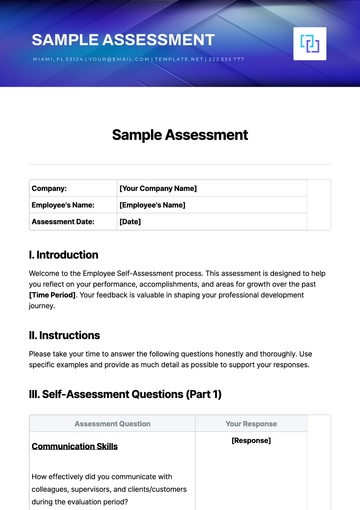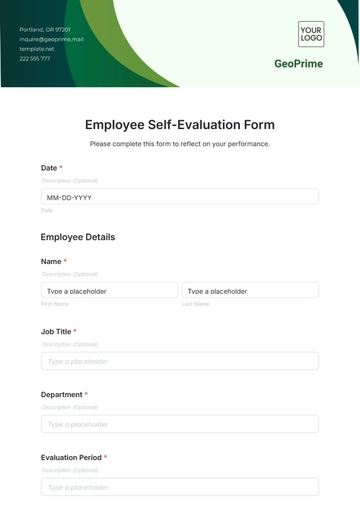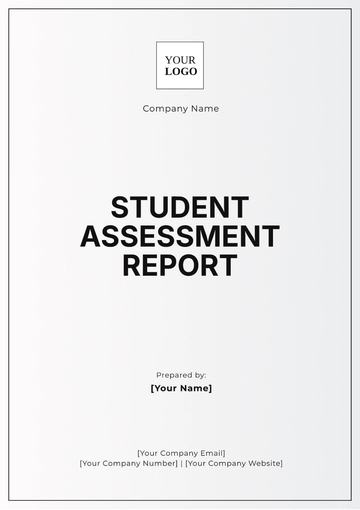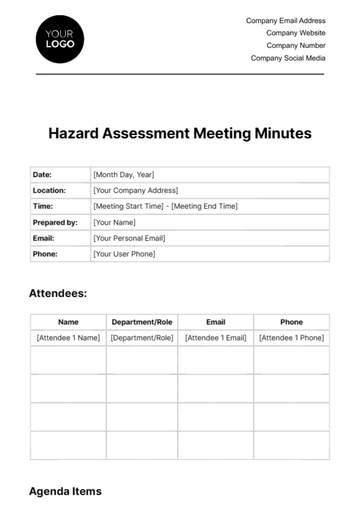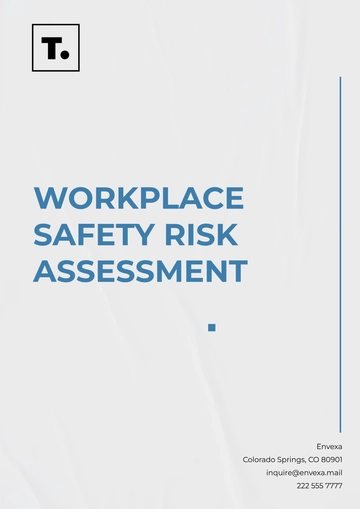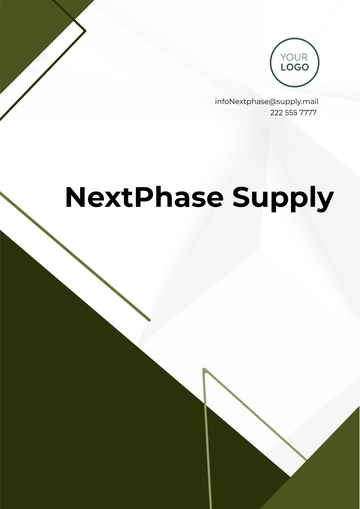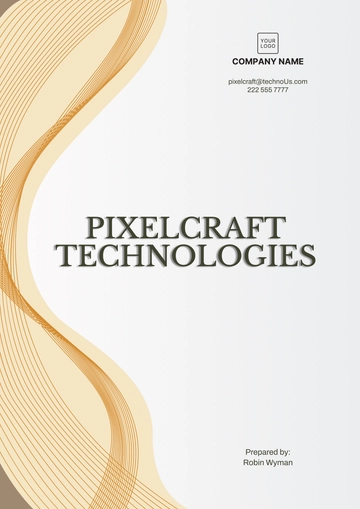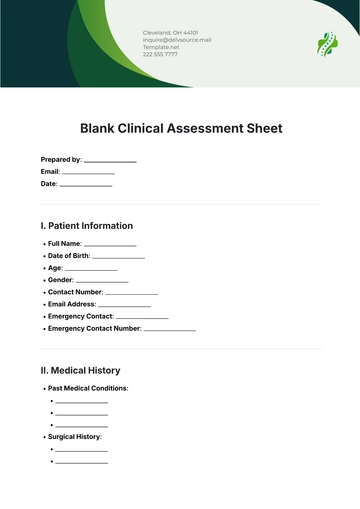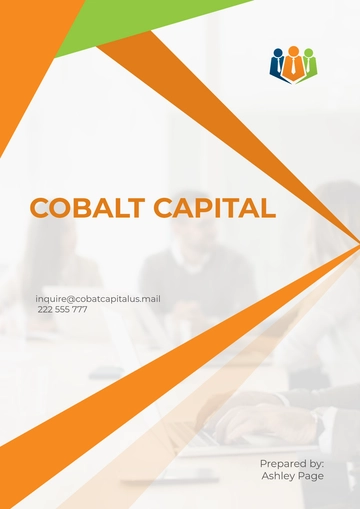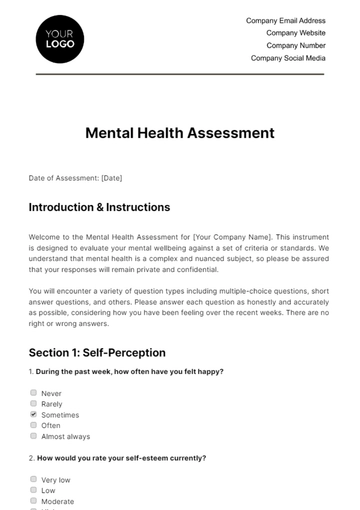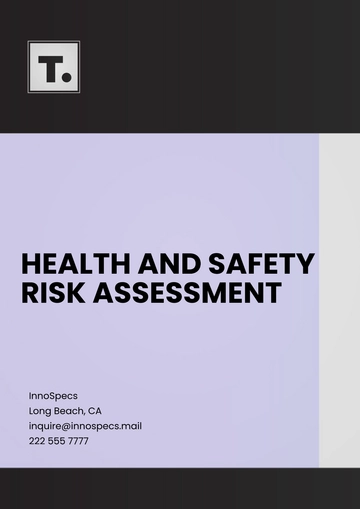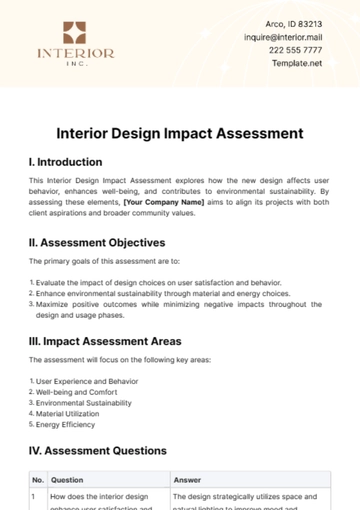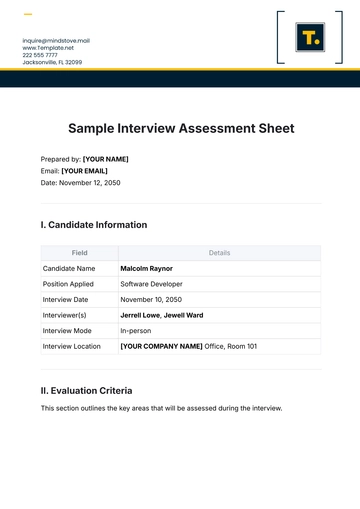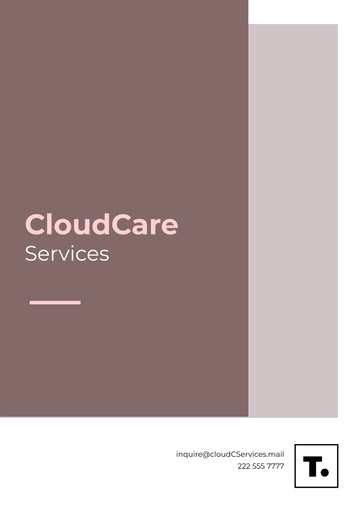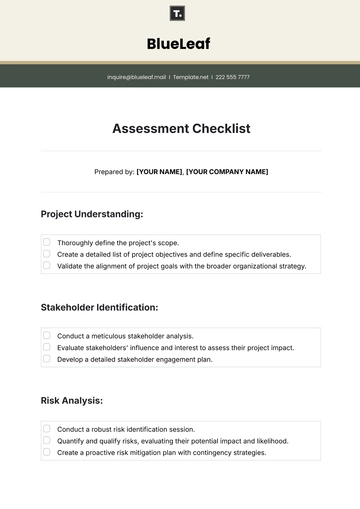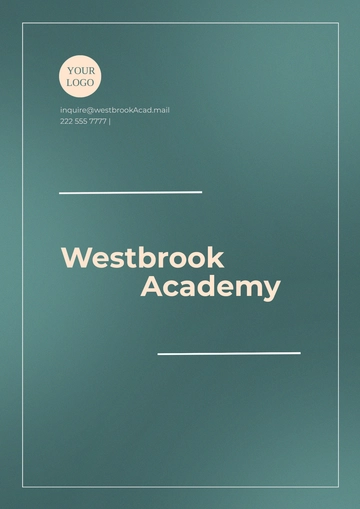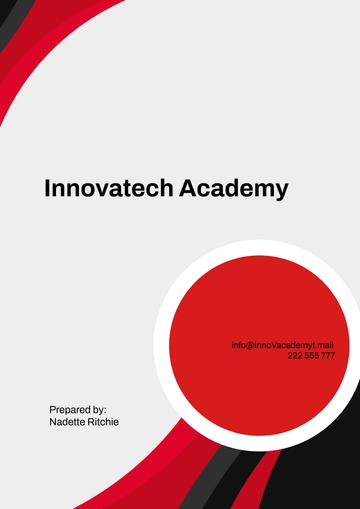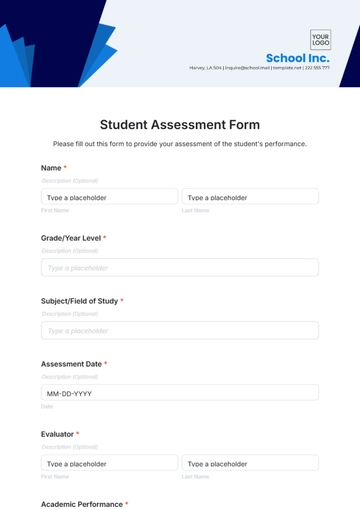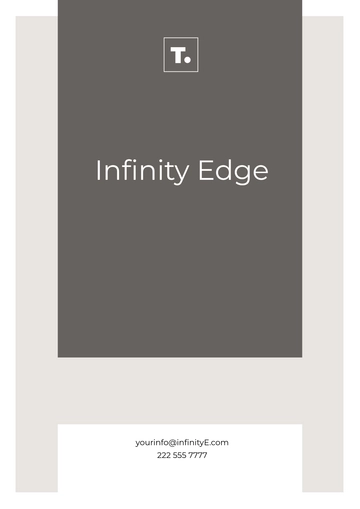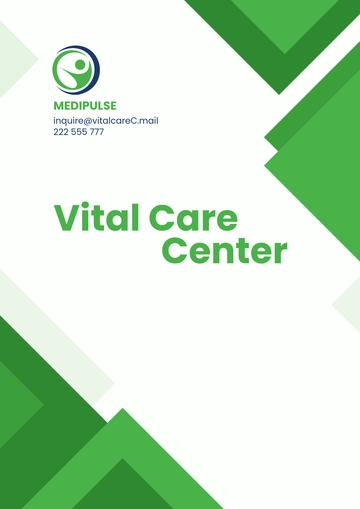Free Academic Assessment Report
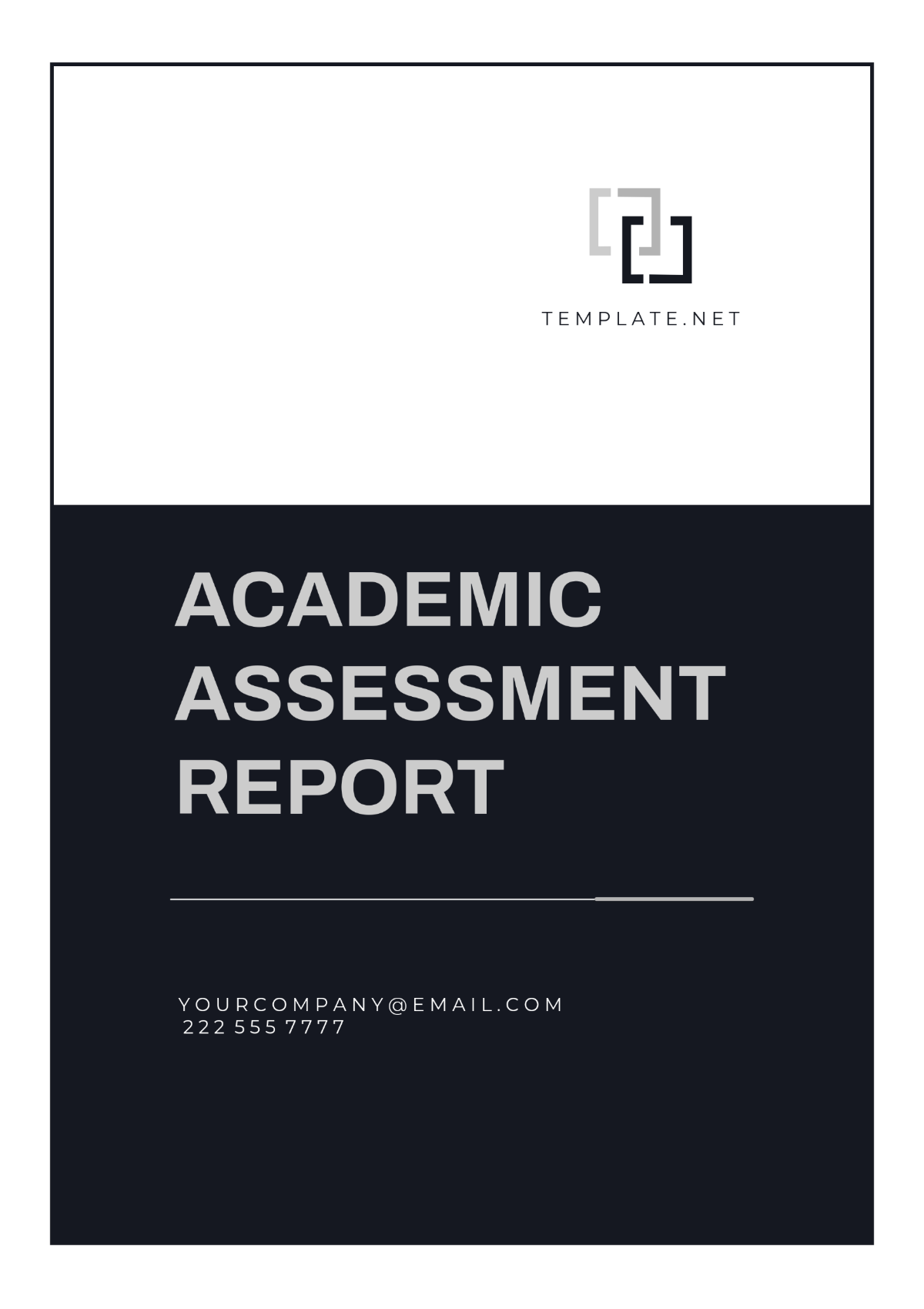
Prepared by: [YOUR NAME]
Email: [YOUR EMAIL]
I. Introduction
In an ever-evolving educational landscape, the necessity for robust curriculum development cannot be overstated. This report evaluates the current state of the curriculum and its effectiveness in meeting the diverse needs of students and stakeholders. Through systematic assessment and feedback, we aim to foster an educational environment that promotes continuous improvement and student success.
II. Purpose of the Assessment
The purpose of this assessment is to:
Evaluate the effectiveness of the current curriculum.
Identify strengths and areas for improvement.
Provide actionable recommendations for curriculum enhancement.
III. Methodology
The assessment employed a mixed-methods approach, including qualitative interviews with faculty and quantitative surveys distributed to students. Data collection took place from January 15, 2050, to March 30, 2050. The following table summarizes the participants involved in the assessment:
Participant Type | Number of Participants | Method of Data Collection | Date of Collection | Key Findings |
|---|---|---|---|---|
Faculty | 15 | Interviews | January 20, 2050 | Need for updated materials |
Students | 200 | Surveys | March 15, 2050 | Desire for more practical skills |
Administrators | 5 | Focus Groups | February 10, 2050 | Support for curriculum change |
Employers | 10 | Feedback Forms | March 5, 2050 | Emphasis on employability skills |
Alumni | 25 | Interviews | February 25, 2050 | Mixed reviews on preparation |
IV. Findings
A. Strengths
Engagement: The curriculum promotes student engagement through interactive learning experiences.
Diversity: There is a strong emphasis on inclusive practices that cater to a diverse student body.
B. Areas for Improvement
Resource Availability: Limited access to updated learning resources and technology.
Skill Application: A gap exists between theoretical knowledge and practical application in real-world scenarios.
V. Recommendations
Based on the findings, the following recommendations are proposed:
Resource Update: Invest in new learning materials and technology to enhance the curriculum.
Curriculum Alignment: Align courses with industry standards to ensure relevant skill development.
Professional Development: Provide faculty with training on innovative teaching methodologies.
VI. Conclusion
In conclusion, the assessment of the curriculum highlights both strengths and areas for improvement, emphasizing the need for ongoing evaluation and adaptation. By implementing the proposed recommendations, the institution can enhance its curriculum to better prepare students for future challenges. Continuous engagement with all stakeholders will be vital in fostering an educational environment that not only meets but exceeds expectations.
- 100% Customizable, free editor
- Access 1 Million+ Templates, photo’s & graphics
- Download or share as a template
- Click and replace photos, graphics, text, backgrounds
- Resize, crop, AI write & more
- Access advanced editor
Transform your academic assessments with the Academic Assessment Report Template from Template.net. This fully customizable and editable template allows educators to efficiently create comprehensive reports tailored to their needs. Featuring an intuitive design and easy-to-use AI Editor Tool, it ensures a seamless experience, saving you time while delivering professional results.
